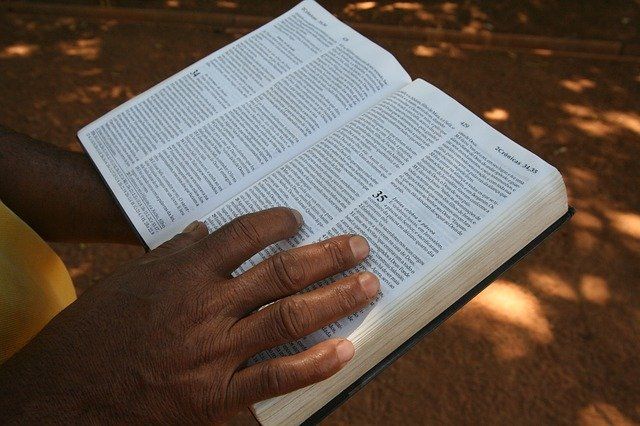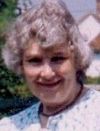It was one-o’clock in the morning. A solitary figure remained toiling in the darkened cotton field, still patiently harvesting the crop. Sam was a slave, but a slave with a difference. His master, a kindly man, had offered him the opportunity to buy his freedom.
So now, by working far beyond his stated hours of service, Sam was gradually saving the pittance he earned until he reached his own purchase price. But Sam had a further object in view.
After he had bought his own freedom he intended to buy the freedom of his wife, Mary, who worked on the neighbouring farm, and also that of his five young children.
The American Civil War would eventually lead to the legal abolition of slavery in 1865. But these were the years prior to the war, and Blacks were still despised and sometimes shown less respect than the farm livestock.
It was also a period of widespread spiritual awakening in many parts of America. Vast and noisy camp meetings were popular and on these occasions a genuine work of God could well take place, though there were also frequent scenes of spurious and emotional phenomena.
Profoundly affected
Celie, daughter of the farmer for whom Mary worked, together with a group of other young people, decided to attend such a Methodist camp meeting. They went more out of curiosity than concern, but the unexpected happened.
Profoundly affected by the preaching, Celie was converted – a shock to her elite slave-owning family of Long Green in Madison. But shortly afterwards Celie fell ill with typhoid fever and no medical skill seemed able to arrest the course of her illness. It soon became clear that she had not long to live. ‘Mother,’ said the girl, ‘I have one request to make’.
‘Anything, my dear’, replied her distracted mother.

‘I want you to promise me to free Mary and the children’, Celie begged. Unable to deny such a request, Celie’s mother consented.
‘Sing to me, Mary’, the dying girl commanded the slave. In lilting tones Mary sang sweetly of the joys of the redeemed children of God in a land where slave and free alike praise the Lamb of God.
After Celie’s death, her mother honoured her pledge and Mary and her children were all set free.
You must pray
They might be free, but Sam and Mary quickly discovered when they moved to Pennsylvania that their privileges were few. A God-fearing family, they would pray constantly for work to enable them to provide for their ever-increasing family.
Black children had scant educational opportunities and Amanda, the eldest in the family, received little more than three months schooling. An intelligent child, she was therefore largely self-taught.
At thirteen Amanda was judged old enough to leave home and become a domestic servant and at seventeen she was married. Though her husband could talk freely on religious matters, drink was in fact his master and Amanda’s lot was unenviable.
Coming from a home where intense and warm-hearted Christian truths were regularly pressed upon her, Amanda hid her own spiritual anxieties under a cloak of scepticism.
When the girl was eighteen, however, a serious illness threatened to spell the end of her brief life. ‘Amanda, my child’, begged her father, ‘you must pray’.
Conditions

Too ill to care, Amanda only wanted to be left alone. Soon she fell into a troubled sleep and in her sleep she had a strange dream. An angel was standing at the foot of her bed with outspread wings.
Three times the angel spoke, and each time the words were the same: ‘Go back! Go back! Go back!’ Perhaps God had some purpose for her life, thought Amanda as she slowly began to recover.
So close a brush with death brought a new seriousness into the girl’s life. But self-willed and proud, Amanda predetermined the conditions under which she would accept God’s mercy.
Yet she became increasingly aware of her sin, and always Satan whispered: ‘God will never hear you. You’re such a sinner’.
‘True’, thought Amanda. ‘If only I knew of someone who had obeyed God perfectly and had never sinned. He could pray for me, and God would hear him’. In her ignorance she began to address the sun, the moon, the stars, the trees. ‘Sun,’ she would say, ‘you have never sinned like me. You have always obeyed God and kept your place in the heavens. Tell Jesus I am a poor sinner’.
Inner battle
But the sun did not pray for her. At last Amanda became desperate. She must receive an answer from God or die. By now she was nineteen and working as a housemaid in a Columbia home.
So, after fulfilling all her duties one afternoon, Amanda went downstairs to the cellar. Here she determined she would stay until God heard her cry or the family came down and discovered her dead body.
‘Oh Lord’, she cried out in desperation: ‘I have come down here to die. I must either have salvation or death this afternoon. Oh! if you will only convert my soul and make me to know it’. How long the inner battle raged she could not tell.
At last Amanda had no more words with which to plead her case. She just looked up and waited. Then she said: ‘If you will help me, I will believe you’. It was the faith that brings joy in heaven.

Amanda sprang to her feet – a new woman. She looked at her hands. Yes, they were still black, but they seemed new hands. She was new all over; a new creation in Christ. She ran up the cellar stairs to the kitchen to view herself in a mirror to see if the glory in her soul had altered her face.
Alone
In vain Satan tried to sow his seeds of doubt in Amanda’s mind during the days that followed. ‘Though I have passed through many sorrows, many trials, never have I had a question in regard to my conversion’, she afterwards declared.
And many trials there were. The death of her infant son occurred soon after that lonely spiritual conflict in the cellar. Then came the death of her husband who had enlisted with the Confederate army when the Civil War broke out.
Amanda was left alone with Mazie her young daughter. She urgently needed more work and drifted back to Philadelphia in search of better employment.
After several years she met a local preacher, James Smith. How wonderful to marry a preacher, thought Amanda as she responded warmly to his proposals of marriage. ‘Reverend and Mrs Smith’ – that sounded good.
But James was a fraud. He was no preacher at all, nor even a Christian. Too late Amanda discovered this, and though James begged forgiveness for deceiving her into becoming his wife, the problems of such a marriage brought added suffering to Amanda.
Restored
James was a freemason and under his influence Amanda joined a women’s branch of the masons. This disturbed her faith and brought her very low. When two more infant sons died in quick succession, Amanda was desolate, her spiritual life at a low ebb.
Now working as a washerwoman in New York, she took in laundry to do at home. Sometimes while her children slept, Amanda would stand all night at the wash tub to increase her income, for James did little to support them.
Yet again God intervened, not to save Amanda from poverty but to restore her spiritually. Under a sudden impulse to hear a certain visiting preacher, she left her infant son in charge of Mazie, and stole out to the service.
It was only a few words that arrested the tired woman’s attention, but they rang through her mind like a bell: ‘God in you, God in you’. The wonder that the believer’s body was indeed the dwelling place of Christ brought a new dimension to her spiritual life. ‘O what glory filled my soul’, Amanda later exclaimed.
Triumphant testimony
Trials, sorrows and poverty dogged Amanda’s path. The death of her five-month old baby, Will, followed shortly afterwards by that of James himself, who had all but forsaken her, left Amanda weak and ill.
But never again did she waver in her faith. With none of her own apart from Mazie, now a teenager, Amanda felt God’s call to a life of active Christian service.
First came tract distribution, then requests to sing to and address groups at the crowded camp meetings.
This in turn led to yet wider travels as she received pressing invitations to tell of God’s dealings with her soul. By the mid 1870s Amanda could be found far from her home: Africa, India and even England.
All heard her triumphant testimony of God’s dealings with a poor girl, born into slavery, yet freed to labour for a Master whose service is perfect liberty.










